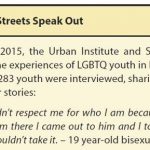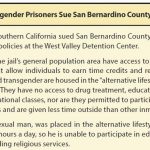Today Bisexual Health Awareness Month centers on bisexual+ youth of color, whose needs and experiences are often ignored, erased, and unaddressed.
Bisexual+ youth of color experience biphobia and racism, which have profound effects on their health and access to services. While there is not a lot of data and research on this particular intersection, several reports and studies have found the following information:
- A report by the Human Rights Campaign highlights health disparities and related challenges of bisexual+ youth. In this report, 43% of Black/African-American, 41% of Hispanic/Latino/Spanish American/Chicano, 35% of Asian/Pacific Islander, and 40% of American Indian/Native American LGBT youth identified as bisexual.
- A report by the Gay-Straight Alliance Network describes harsh discipline and school push-out faced by LGBT youth of color. In one study cited by the report, 1 in 5 LGBT students reported being bullied due to race, ethnicity, or national origin. The report also stated that the harassment experienced by LGBT youth of color in school impacts their level of safety and ability to learn.
- A recent report by the Movement Advancement Project discusses the overrepresentation of LGBT populations in the criminal justice system, particularly transgender youth and youth of color. The report also provides recommendations and resources to address LGBT issues in the criminal justice system.
- Latino and Native American/Pacific Islander LGBT youth have greater odds of attempting suicide compared to their white peers, with Latina LGBT girls having a higher prevalence of suicide attempts in the past year compared to other racial categories, and Latino LGBT boys reporting twice the amount of feeling sad in the past year than boys of other racial categories.
Building inclusive, supportive spaces for bisexual+ youth of color to come out is important in improving their health and well-being. Stronger policies are needed in schools to protect bisexual+ youth of color from harassment and discriminatory discipline. Additionally, more research is needed on the health-related needs, challenges, and experiences of bisexual+ youth of color, and overall, more action is needed to better support them at home, in schools, and within their communities.
Today’s Featured Resources: “An Open Letter to My Younger Bi Sisters,” by Bisexual Women of Color (BIWOC), is a powerful piece for bisexual+ youth of color!


